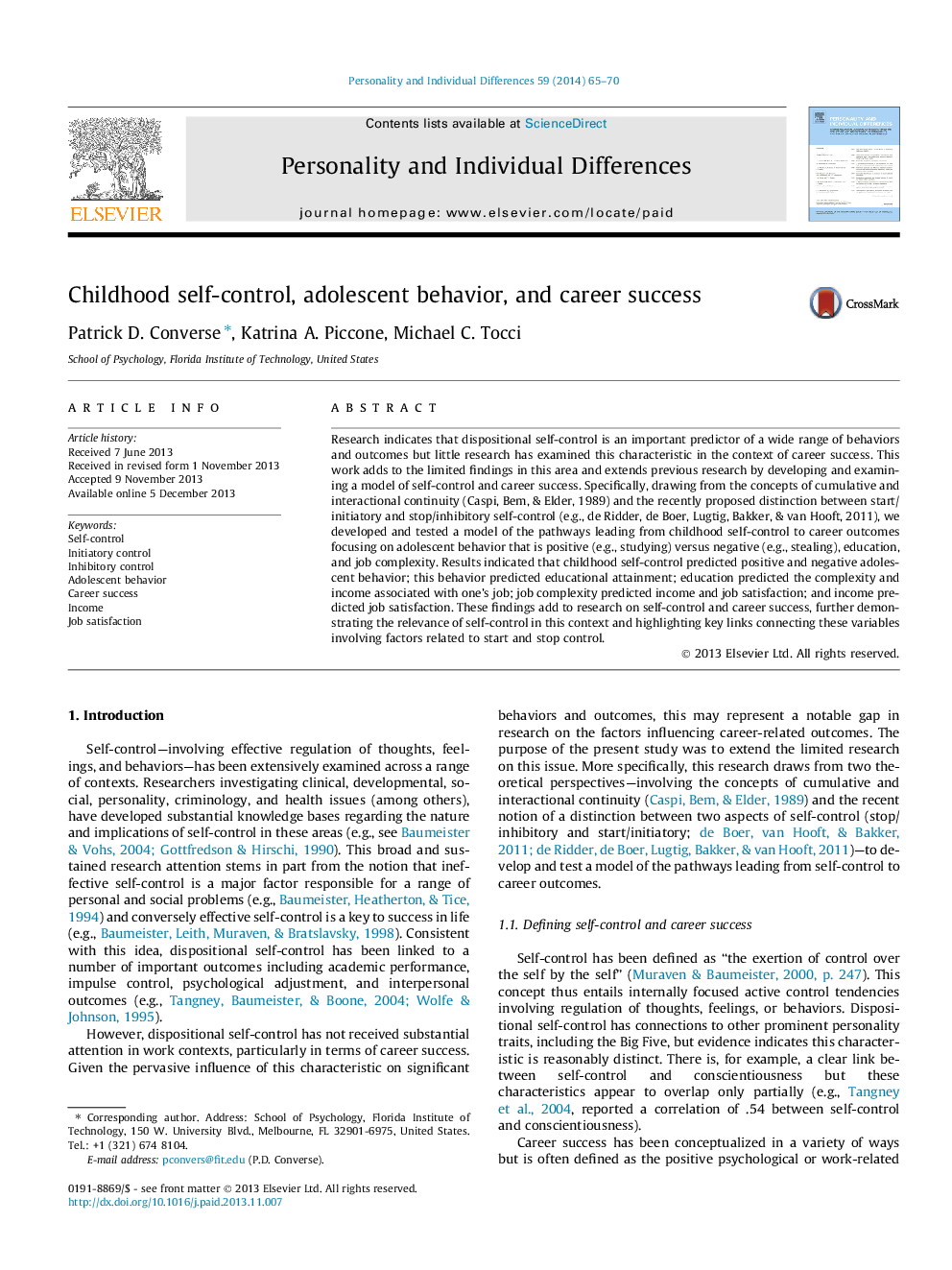| کد مقاله | کد نشریه | سال انتشار | مقاله انگلیسی | نسخه تمام متن |
|---|---|---|---|---|
| 890737 | 1472058 | 2014 | 6 صفحه PDF | دانلود رایگان |
• Examined a model of self-control, adolescent behavior, and career success.
• Childhood self-control predicts positive and negative adolescent behavior.
• Adolescent behavior predicts educational attainment.
• Education predicts job complexity and income.
• Job complexity predicts income and job satisfaction; income predicts satisfaction.
Research indicates that dispositional self-control is an important predictor of a wide range of behaviors and outcomes but little research has examined this characteristic in the context of career success. This work adds to the limited findings in this area and extends previous research by developing and examining a model of self-control and career success. Specifically, drawing from the concepts of cumulative and interactional continuity (Caspi, Bem, & Elder, 1989) and the recently proposed distinction between start/initiatory and stop/inhibitory self-control (e.g., de Ridder, de Boer, Lugtig, Bakker, & van Hooft, 2011), we developed and tested a model of the pathways leading from childhood self-control to career outcomes focusing on adolescent behavior that is positive (e.g., studying) versus negative (e.g., stealing), education, and job complexity. Results indicated that childhood self-control predicted positive and negative adolescent behavior; this behavior predicted educational attainment; education predicted the complexity and income associated with one’s job; job complexity predicted income and job satisfaction; and income predicted job satisfaction. These findings add to research on self-control and career success, further demonstrating the relevance of self-control in this context and highlighting key links connecting these variables involving factors related to start and stop control.
Journal: Personality and Individual Differences - Volume 59, March 2014, Pages 65–70
